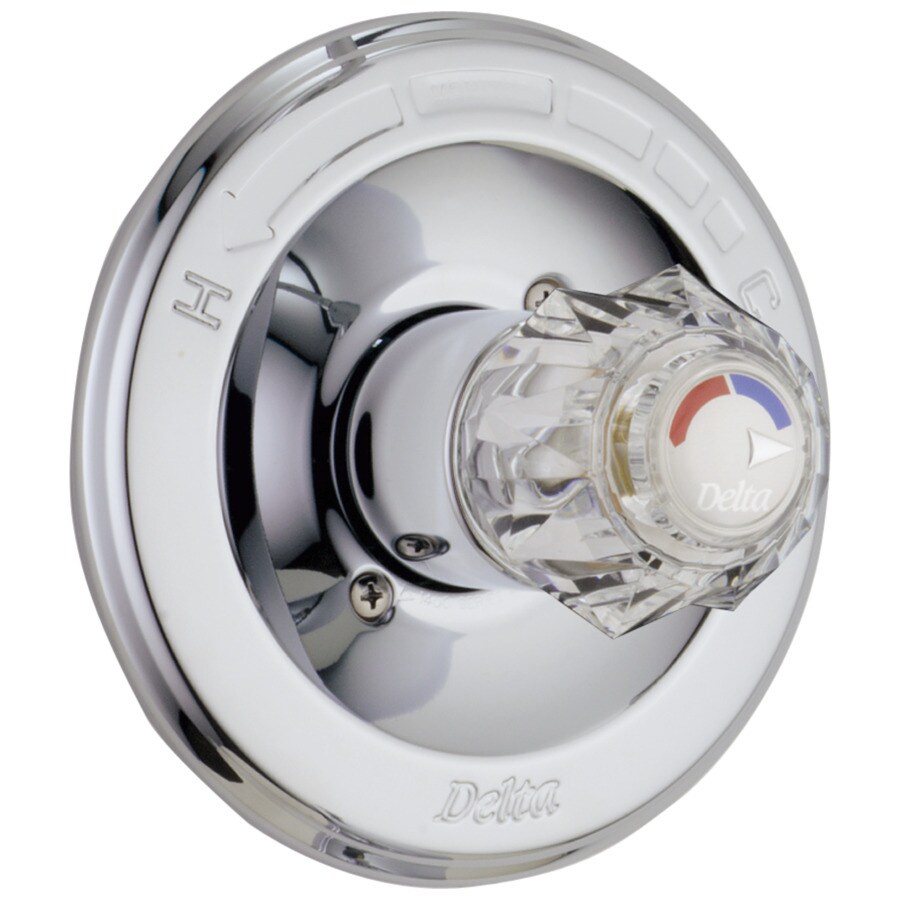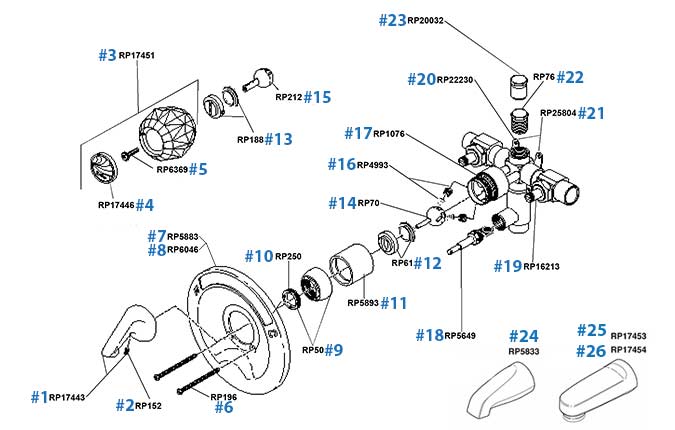Single Handle Tub Shower Faucet Repair: Conquer Leaky Faucets Like a Boss
So, your single handle tub shower faucet is leaking. Dripping. Maybe even spraying water in unexpected directions. It's annoying, wasteful, and frankly, a little embarrassing. Don't worry, you're not alone. This ubiquitous plumbing fixture, offering convenient one-handed control over temperature and flow, is prone to its own set of quirks. Before you call a plumber and empty your wallet, consider this: you can probably fix it yourself.
Fixing a single handle tub shower faucet might sound daunting. Images of complex plumbing diagrams and specialized tools probably spring to mind. But relax. While plumbing can be intricate, many single handle faucet issues are surprisingly simple to resolve. With a little patience, the right tools, and a guide like this one, you’ll be back to enjoying your shower in no time – and bragging to your friends about your newfound plumbing prowess.
The single handle faucet, a marvel of modern plumbing, wasn't always around. Before its invention, balancing hot and cold water required two separate handles, a constant dance between scalding and freezing. The single lever design simplified things considerably. But like all inventions, it introduced a new set of potential problems. These often center around the cartridge, the internal mechanism that controls water flow and temperature. A worn-out cartridge is the usual suspect in leaky faucets, but other culprits include O-rings, seals, and even mineral buildup.
Understanding the inner workings of your single handle faucet is key to successful repairs. Most operate using a cartridge that mixes hot and cold water and controls the flow. This cartridge sits within the faucet body and is controlled by the handle. As the handle moves, it adjusts the cartridge position, altering the water temperature and flow. Over time, the cartridge can wear out, leading to leaks or difficulty adjusting the water. Knowing the type of cartridge your faucet uses is essential for purchasing the correct replacement.
Troubleshooting a leaky single handle tub shower faucet usually starts with identifying the source of the leak. Is it dripping from the spout? Leaking around the handle base? Or perhaps spraying from unexpected places? Each leak points to a different potential problem. A leak from the spout often indicates a worn-out cartridge. A leak around the handle base might be a faulty O-ring or seal. And spraying water could signal a more serious issue within the valve body itself. Once you've identified the leak's origin, you can start narrowing down the potential causes and choose the appropriate repair strategy.
One major benefit of tackling single-handle tub shower faucet repairs yourself is, of course, saving money. Plumbing services can be expensive, and a simple cartridge replacement can easily cost hundreds of dollars. Doing it yourself will only set you back the price of the parts, usually under $50. Plus, you'll gain valuable DIY skills that can be applied to other home repairs.
Another advantage is the satisfaction of a job well done. There’s a certain pride that comes with fixing something yourself, especially something as essential as a functioning shower. You’ll no longer be at the mercy of a leaky faucet – you’ll be the master of your own plumbing domain.
Before you start dismantling your faucet, gather your tools. You'll likely need a Phillips head screwdriver, a flathead screwdriver, an adjustable wrench, pliers, and possibly a cartridge puller (depending on your faucet model). It's also a good idea to have some replacement O-rings and seals on hand, as these often wear out and can contribute to leaks. Turn off the water supply to the faucet before starting any repairs. This is crucial to prevent flooding and further damage.
Advantages and Disadvantages of DIY Single Handle Tub Shower Faucet Repair
| Advantages | Disadvantages |
|---|---|
| Cost Savings | Potential for further damage if done incorrectly |
| Skill Development | Time commitment |
| Sense of Accomplishment | May require specialized tools |
Frequently Asked Questions:
Q: How do I identify the type of cartridge in my faucet? A: Consult your faucet's manual or look for markings on the cartridge itself.
Q: Can I use any type of O-ring? A: No, use O-rings specifically designed for plumbing fixtures.
Q: What if I can't remove the cartridge? A: A cartridge puller can help, but if it's still stuck, it might be time to call a plumber.
Q: How often should I replace my faucet cartridge? A: It depends on usage, but typically every few years.
Q: What if the leak persists after replacing the cartridge? A: Check for other worn-out parts, like O-rings or seals.
Q: How do I prevent mineral buildup in my faucet? A: Periodically clean the aerator and consider installing a water softener.
Q: Is it difficult to replace a shower faucet handle? A: Usually it just involves removing a screw and pulling off the handle.
Q: What if I strip a screw during the repair? A: Try using a screw extractor or call a professional for help.
In conclusion, single handle tub shower faucet repair might seem intimidating at first, but it's often a manageable DIY project that can save you money and give you a sense of accomplishment. By understanding the basics of how these faucets work, identifying the source of the leak, and following a step-by-step approach, you can conquer those drips and leaks like a true plumbing champion. Reclaiming control over your shower and your wallet is just a few simple repairs away. Remember to always turn off the water supply before beginning any work, and don't hesitate to call a professional if you encounter any challenges you can't handle. A well-functioning faucet isn't just a convenience; it's a key component of a comfortable and efficient home.
Unlocking pga village port st lucie rental secrets your guide to golf paradise
The allure of sw 6990 caviar a deep dive into sherwin williams timeless hue
Gone but not forgotten remembering the acting legends lost in 2024 so far














